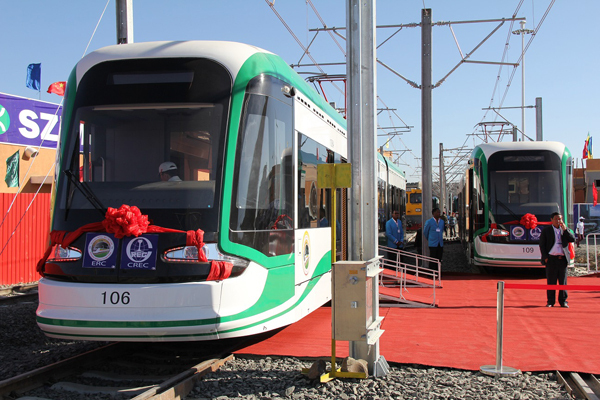Chinelo Anohu-Amazu, the director general of Nigeria’s pension commission is working to build trust in the system and integrate workers from the informal sector.
For someone who oversees billions of dollars in pension funds and pilots sweeping reforms in Africa’s biggest economy, Chinelo Anohu-Amazu did not shout her credentials from the roof tops when she visited The Africa Report‘s office in Paris.
It’s not an issue of paying tax, it’s an issue of saving a portion of what they earn for their retirement benefits
She spoke at a meeting at the Organisation for Economic Cooperation and Development a couple of kilometres away and has been urging African states to coordinate more effectively on pension reform and build up funds that can be used for cross-border development and investment.
Since being confirmed as director general of Nigeria’s National Pension Commission last October, Anohu-Amazu has been stepping up her diplomatic efforts in a bid to attract more investors into Africa’s markets.
At the United Nations Conference on Financing for Development at Addis Ababa in July, Anohu-Amazu explained how well-managed pension funds offered an important source of finance for infrastructure and housing development.
But such innovations would require full accountability and political commitment, says Anohu-Amazu: “Right now, the safest place for pensions to be [invested in] is federal government bonds […] but it’s not the most efficient because we would rather have it in corporate bonds providing services for both the contributors and the retirees alike.”
New contributors
The sums at stake are substantial. Since Nigeria’s pension reforms started in 2004, some 6.5 million workers are now paying into the system.
Total pension funds in Nigeria are now worth more than N4.5trn ($22.3bn), and that figure could triple in the next four years.
“The target is to hit 20 million contributors by 2019, but that’s actually a very conservative figure,” explains Anohu-Amazu.
“If we get enough governmental support, we can exponentially increase that by targeting the informal sector, where we have the hairdressers, the maintenance workers, the plumbers. Those are workers. They’re earning, but they’re off the radar because they don’t have employers.”
When we suggested that some informal workers may be reluctant to join a contributory pension scheme because it could make them liable for income tax, Anohu-Amazu was sceptical.
“It’s not an issue of paying tax, it’s an issue of saving a portion of what they earn for their retirement benefits.”
Pension funds can play a key role in attracting investment, she says.
Talks are underway to allow Nigerian pension funds to be invested more heavily in infrastructure and private-equity firms.
Meeting liabilities
The trickiest question in this pension-fuelled optimism is one of trust.
“In the seven to eight years of operation, there has not been one single case of fraud in the new pension system […] This is not because of how fabulous the people who are running it are […] It’s because the systems are entrenched to prevent fraud.”
All pension contributors are registered biometrically and get quarterly reports on the management of their funds.
The pension commission, Anohu-Amazu explains, is solely the regulator. The funds are held by licensed custodians, owned mainly by Nigerian banks, which report daily to the commission to ensure they do not exceed limits on investment levels.
“We’re not venture capitalists. We’re not private equity. We have liabilities that must be met. And you’re not going to tell a 65-year-old man who’s retiring […] we can’t pay you yet because we’re waiting for an upturn.”
And that responsibility, written into its constitution, helps the commission to keep a perspective on what is set to be one of the continent’s biggest sources of investment financing in the coming years. ●



